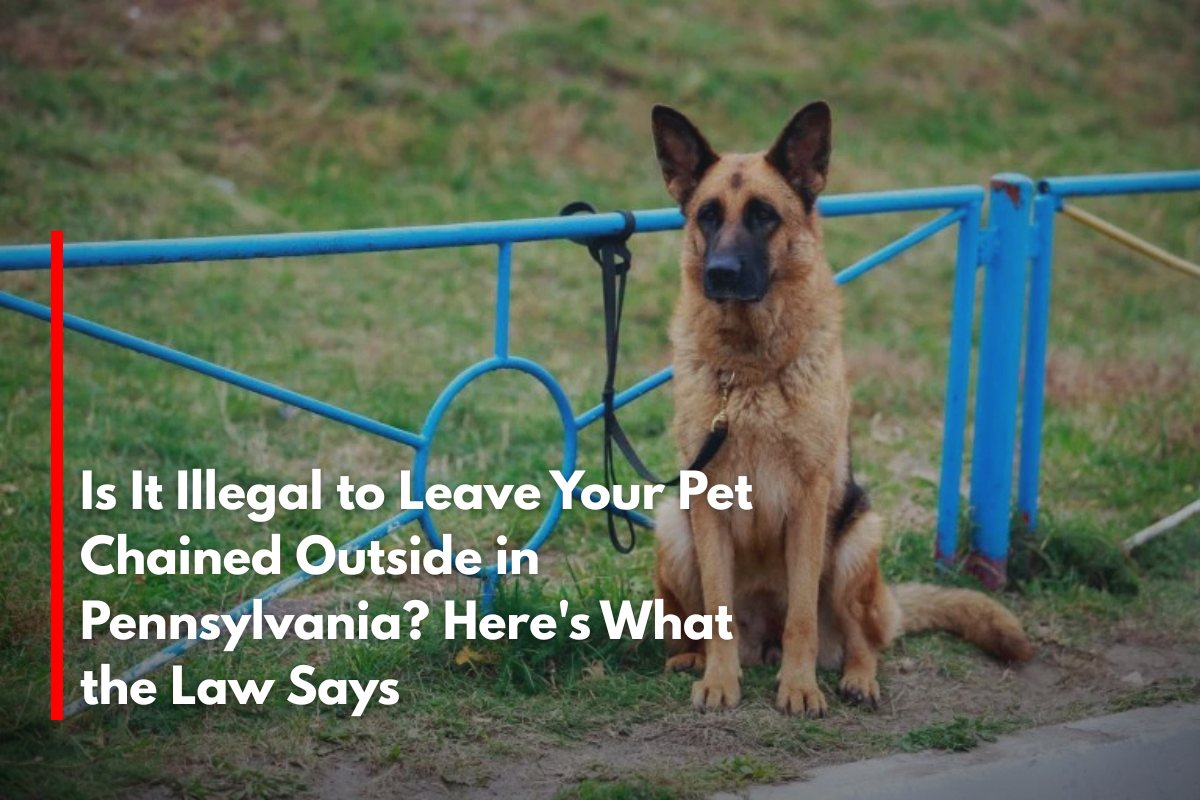Leaving pets chained or tethered outside has long been a controversial issue, balancing concerns for animal welfare with pet owner practices. In Pennsylvania, recent legislation and animal welfare laws have introduced clearer rules to regulate pet tethering and protect animals from neglect and cruelty. This article provides a comprehensive overview of Pennsylvania’s current laws on chaining pets outdoors in 2025.
Pennsylvania’s Pet Tethering Law Overview
Pennsylvania’s laws do not outright ban tethering or chaining dogs outside but heavily regulate it to prevent abuse and neglect. The state has specific restrictions designed to ensure an animal’s safety, comfort, and well-being while tethered.
Key legal requirements include:
A dog may not be tethered for more than nine hours within any 24-hour period.
When the outdoor temperature is above 90°F or below 30°F, tethering is limited to 30 minutes or less to prevent heatstroke, hypothermia, or distress.
The tether or chain must be at least three times the length of the dog or 10 feet, whichever is longer, to allow adequate movement.
Collars must be non-choke, non-prong, and non-pinching types to reduce injury risk.
Dogs must have access to potable water and shade or shelter to protect from weather extremes.
Animal owners must ensure the tethered area is clean and free from excessive waste or hazards.
Penalties for Violations
Violating Pennsylvania’s pet tethering law can lead to serious repercussions:
Neglect charges can result in fines from $300 up to $2,000 and jail time ranging from 90 days to one year depending on severity.
Animal cruelty misdemeanors carry penalties of up to two years in jail or fines up to $5,000.
In more serious or repeated cases, felony charges can apply, bringing up to seven years in prison and $15,000 fines.
Convicted individuals lose ownership rights to their pets and may be barred from future pet ownership.
Veterinarians and animal welfare workers reporting violations in good faith receive protection from lawsuits.
Exceptions and Special Cases
Certain activities are exempt from the tethering restrictions, such as lawful:
Recreational or camping scenarios where regional or facility rules apply may also have different requirements.
Animal Welfare and Community Impact
The laws reflect growing recognition in Pennsylvania of the physical and psychological harm improper tethering can impose on animals, including injuries from collars, lack of social interaction, and exposure to weather. Advocacy groups promote alternatives such as fenced yards or supervised free roaming to improve dogs’ quality of life.
In Pennsylvania, leaving pets chained outside is regulated but not outright banned, with laws aiming to ensure responsible tethering that avoids neglect, injury, or cruelty. Pet owners must adhere to time limits, proper equipment, and provide shelter and water. Failure to comply can lead to significant legal consequences, emphasizing Pennsylvania’s commitment to animal welfare while balancing owner responsibilities for 2025 and beyond.
Sources
(https://pet-nanny.net/pet-tethering-rules-change-pennsylvania/)
(https://www.peta.org/issues/animal-companion-issues/ordinances/pennsylvania/)
(https://www.twp.ferguson.pa.us/police-department/news/pa-law-makes-it-illegal-leave-dogs-outside-freezing-weather)
(https://www.peta.org/issues/animal-companion-issues/ordinances/pennsylvania/pittsburgh-pennsylvania/)
(https://www.law.upenn.edu/live/files/11612-ellison-tethering-legal)











